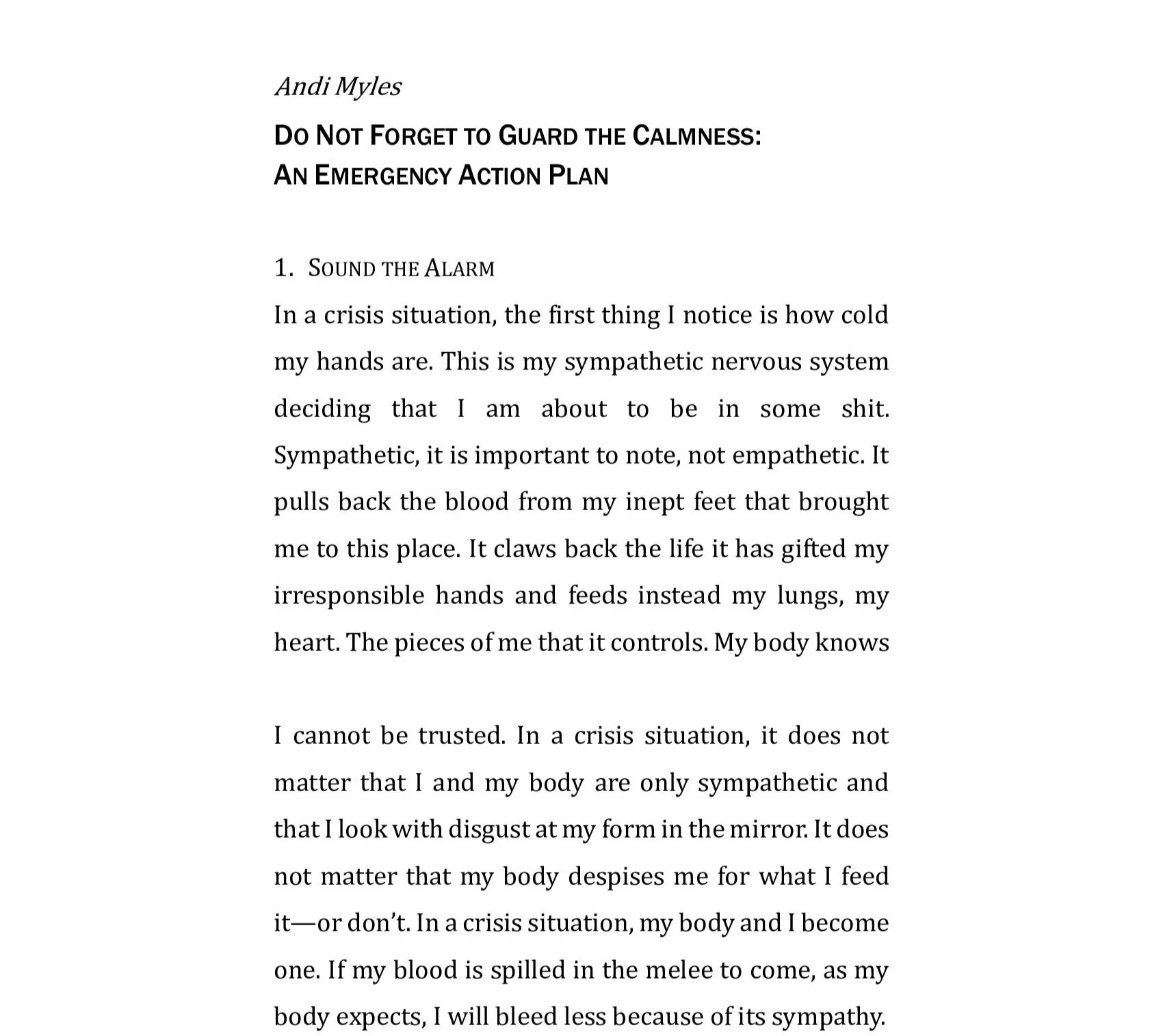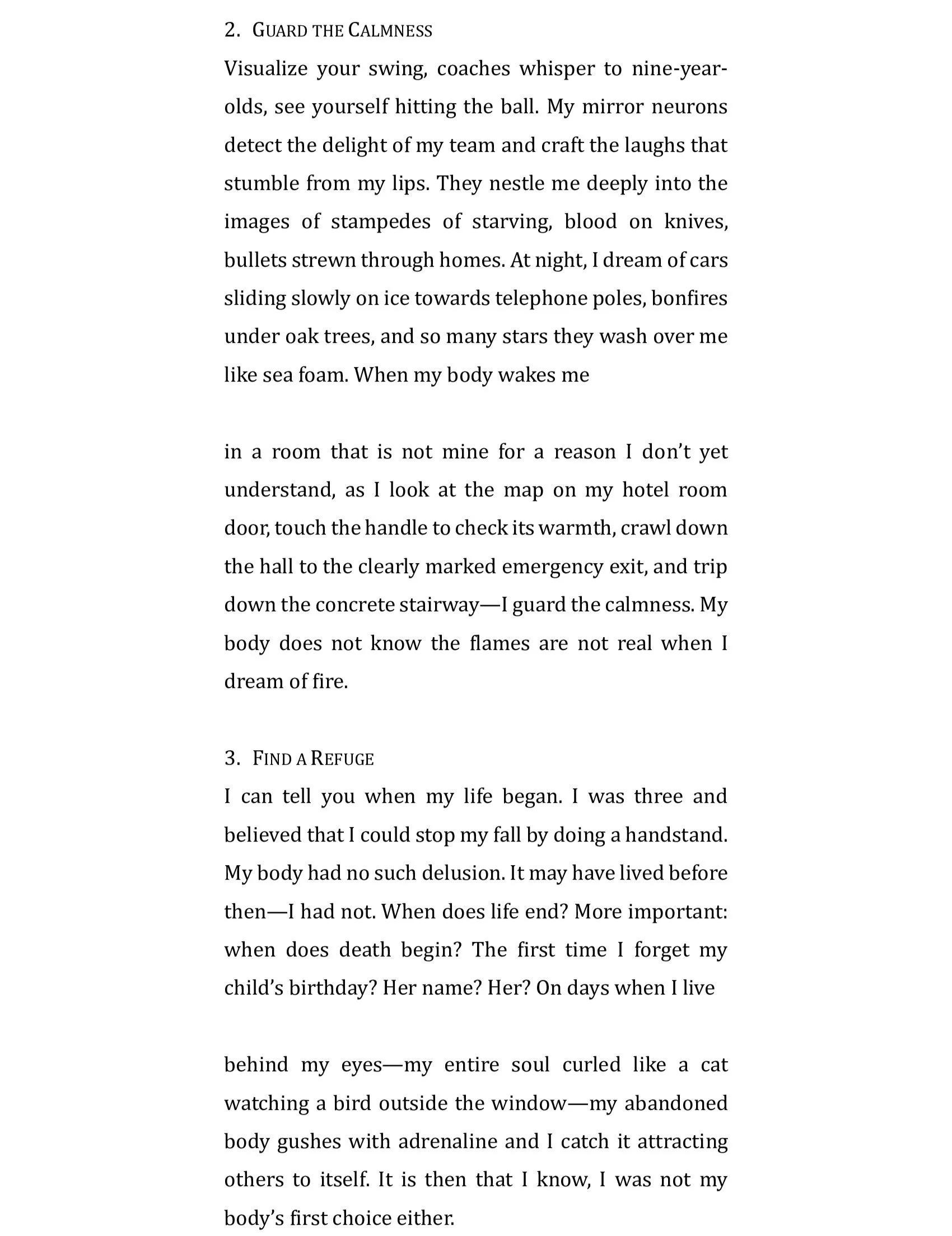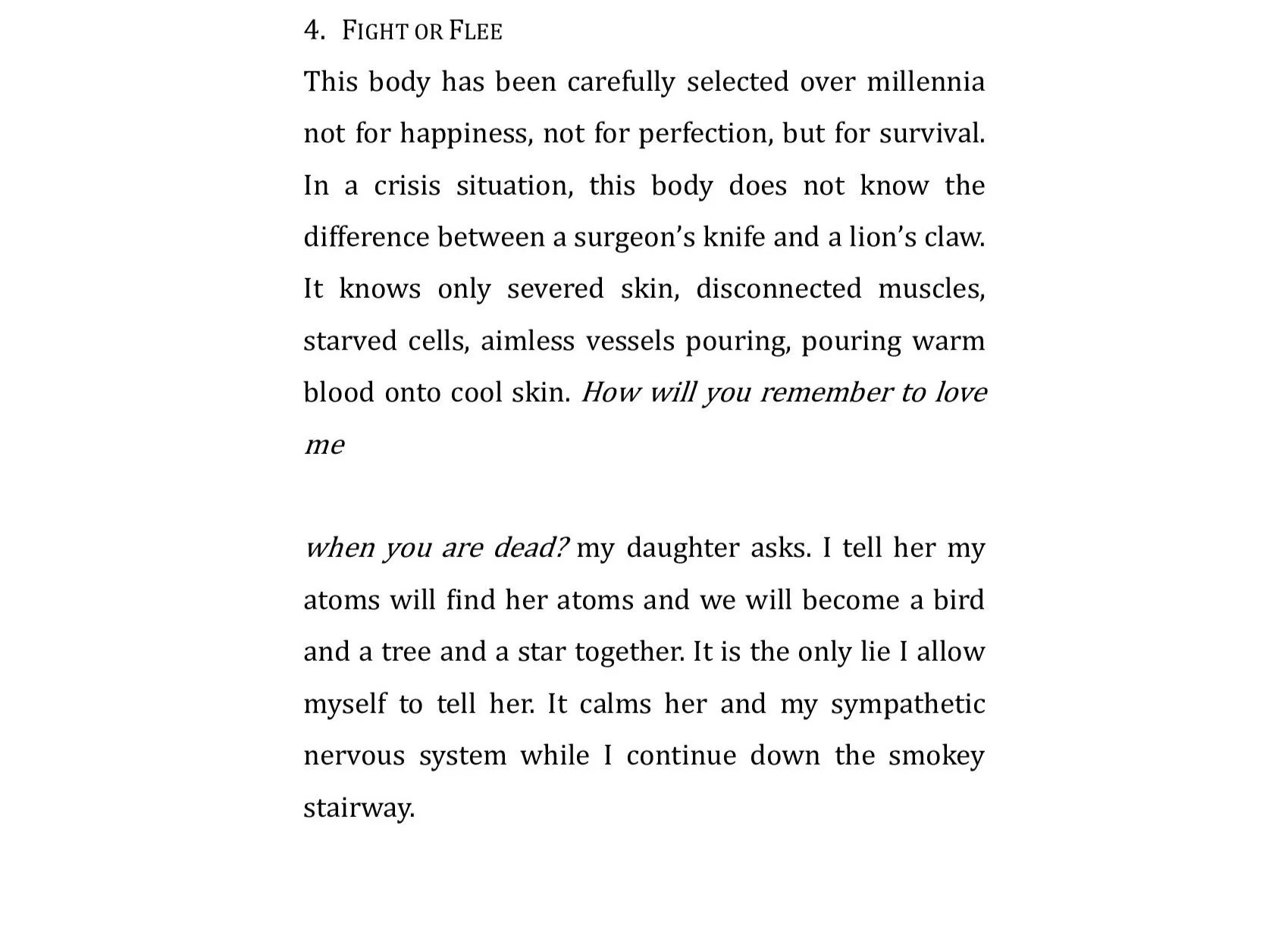Runner-up, 2024 River Heron Poetry Prize
I realized that over the years, I have separated myself so much from my body—in conversations about weight, health, beauty, sexuality—that I saw it as almost an entirely different entity. When I interrogated the idea, I found both beauty and sadness in the dependent and symbiotic nature of my relationship with my body and our common goal of survival.
Andi Myles is a Washington DC area science writer by day, poet in the in between times. Her favorite space is the fine line between essay and poetry. Her work has appeared in Rattle, Tahoma Literary Review, and B O D Y, among others.
W: andimyles.com
I: @andimyleswriter
From Diane LeBlanc, Judge, River Heron Poetry Prize
This prose poem adapts the emergency action plan, a familiar genre, to explore a body’s response to crisis. The unique angle that draws me to this poem is the plan’s focus. It seeks to calm an instinctive and well-meaning system, to protect the body from its own good intentions. The poem blurs biological and emotional definitions of “sympathetic” to the point that the physiological becomes metaphorical. Reading this poem put me directly in the tension between an instinctive protective response and a cultivated practice of calming that response.
Intentional use of form and the page contribute to the thematic tension. Line breaks that defy the prose poem enable leaps across white space within sections. For example, the separation of “My body knows//I cannot be trusted” reads separately as two facts but continuously as a single driving point of the poem. These momentary breaks in the fullness of this poem on the page both disrupted and integrated my understanding of the need for this emergency action plan.
The poem builds toward the daughter’s stunning question about the nature of a parent/child relationship. While connection between the dead and the living may be a necessary (and sympathetic) lie to calm a child, it also enables the parent to go on. The poetic beauty of the lie is stunning and memorable: “I tell her my atoms will find her atoms and we will become a bird and a tree and a star together.” It captures the poem’s transcendence from an emergency plan to an urgent and memorable poem offering new ways to think about the body, survival, and the possibilities and limits of controlling a body’s protective instinct.





